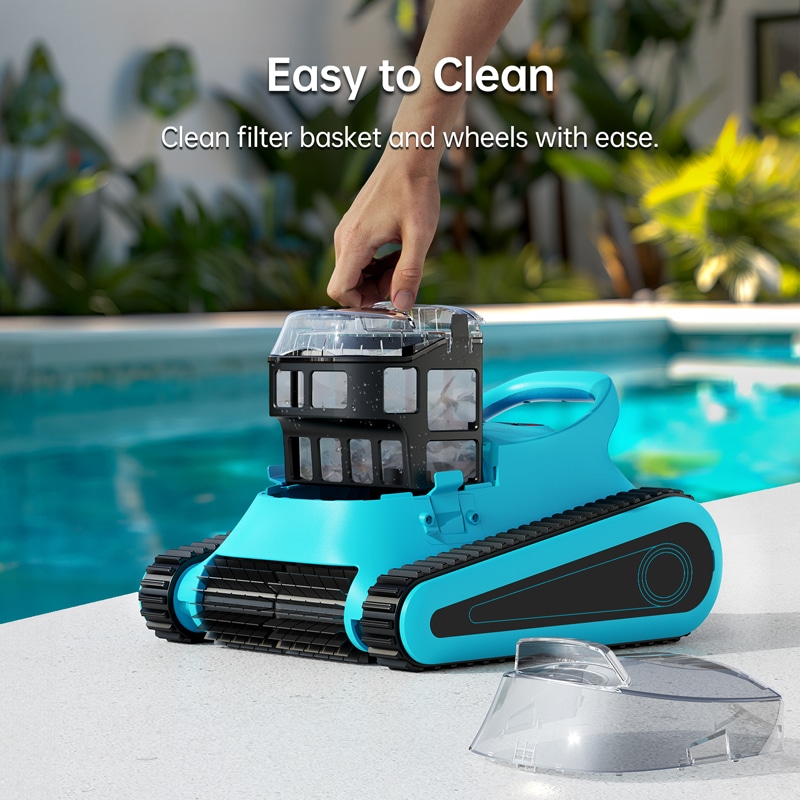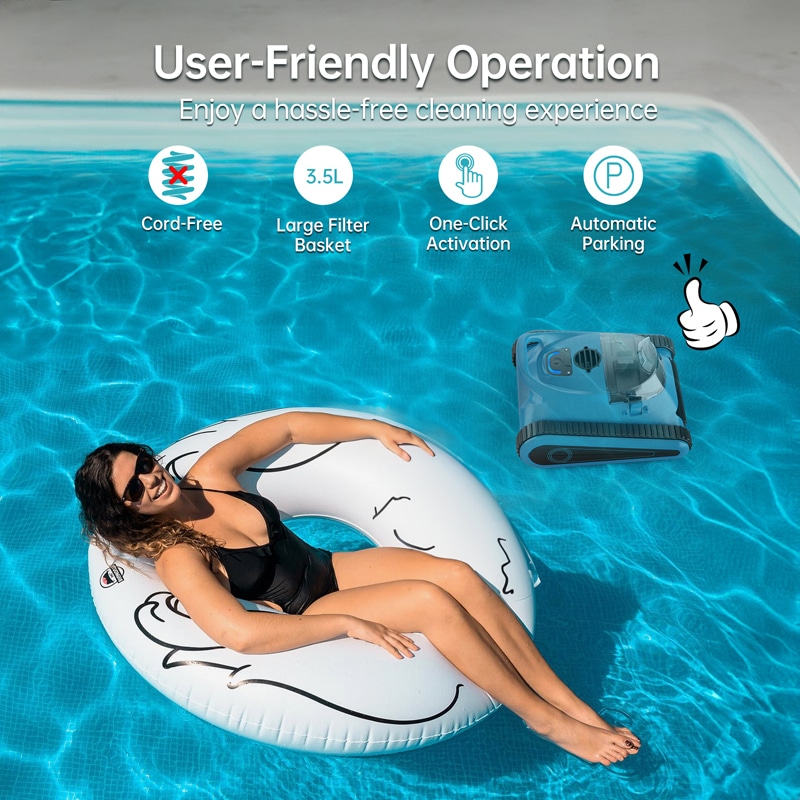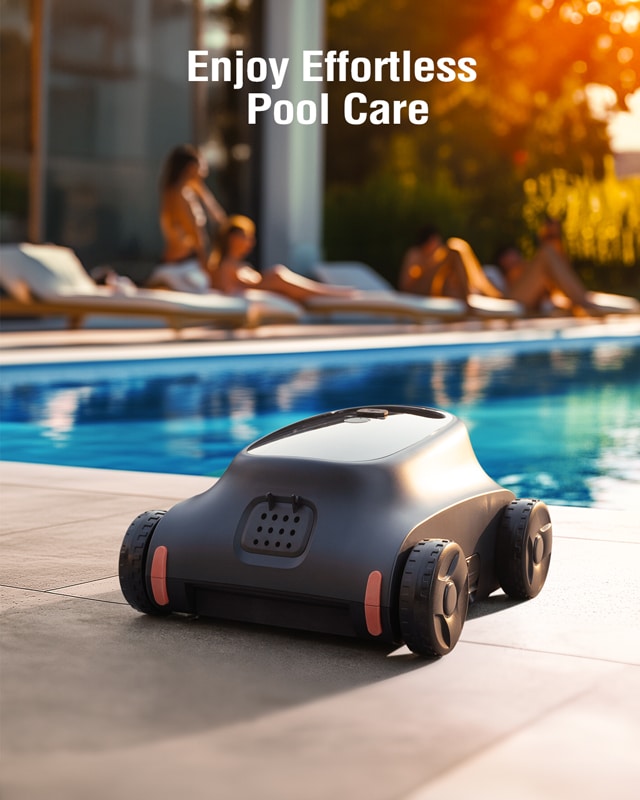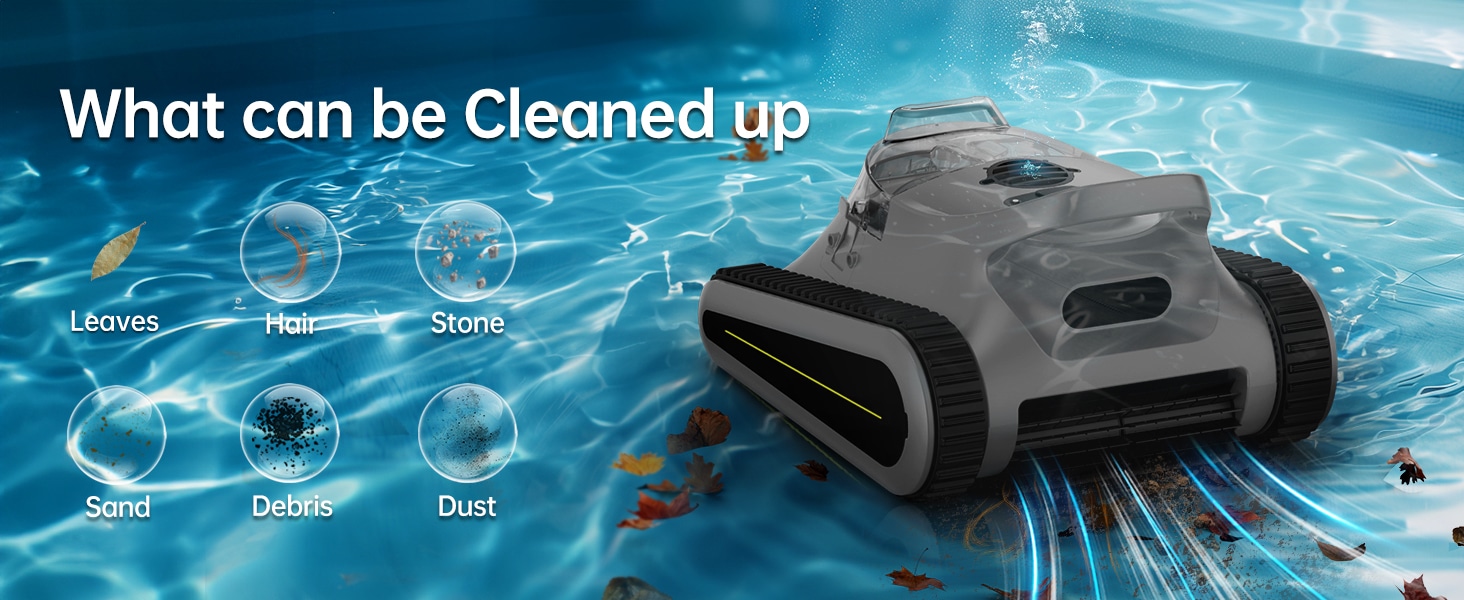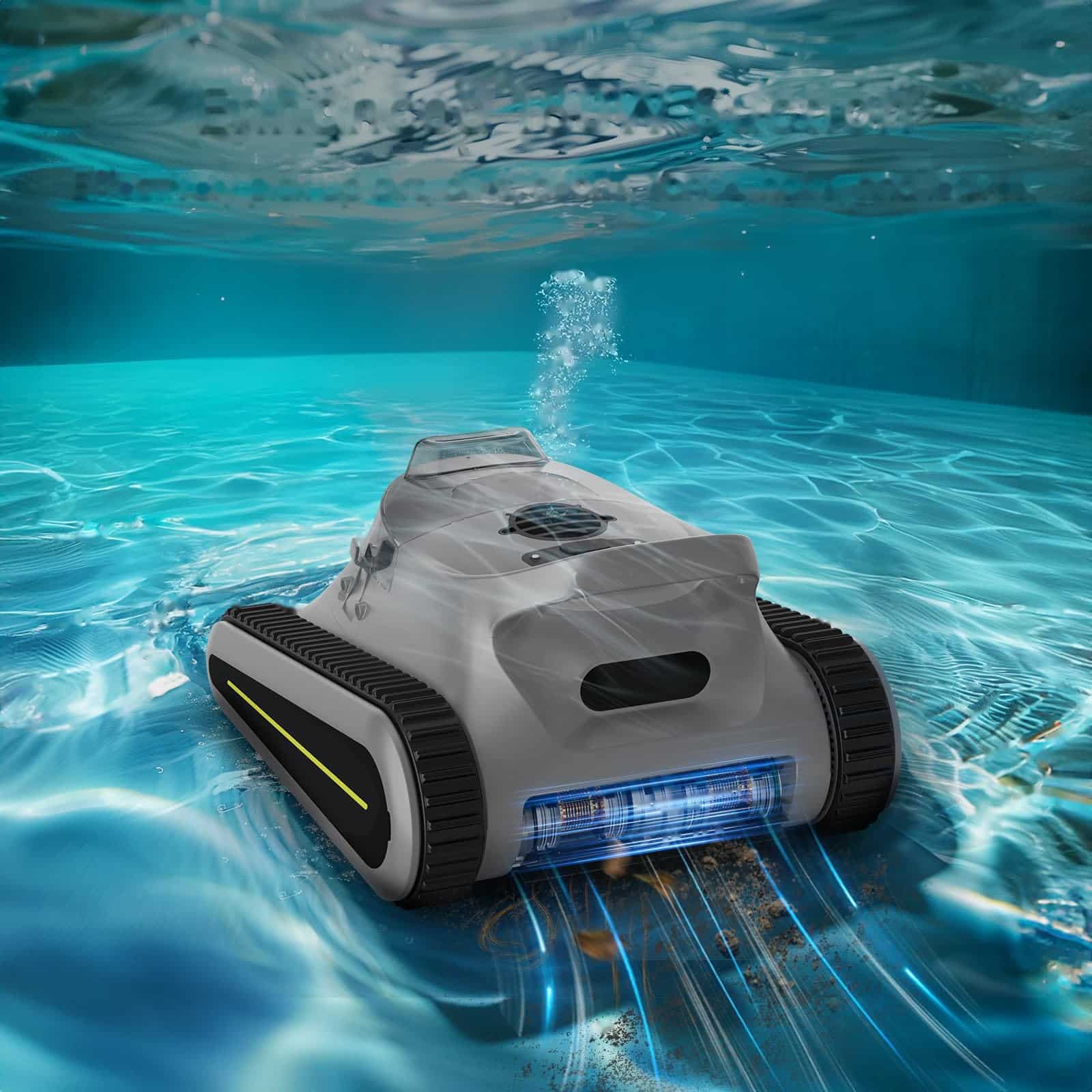Introduction
Keeping a pool clean is essential for maintaining water quality and ensuring a safe swimming environment. However, the method of cleaning can significantly impact the time and effort required. Pool owners generally choose between manual and automatic cleaning options, with electric robotic automatic pool cleaners gaining popularity for their convenience and efficiency. Understanding the differences between these options can help determine whether investing in an automatic robotic pool cleaner is the right decision.
Understanding Pool Cleaning Methods
Manual Pool Cleaners
Manual pool cleaners require direct effort from the pool owner. These cleaners typically include handheld vacuums, telescopic poles, and brushes, which must be used to physically scrub the pool’s surfaces and remove debris. While manual cleaning is an affordable option, it is time-consuming and labor-intensive, making it less practical for larger pools or those requiring frequent maintenance.
Automatic Pool Cleaners
Automatic pool cleaners function with minimal human intervention, making pool maintenance easier and more efficient. There are three main types of automatic cleaners. Suction-side cleaners connect to the pool’s filtration system, using suction power to remove dirt and debris. Pressure-side cleaners rely on water pressure from return jets to propel themselves around the pool while collecting debris in a separate filter bag. The most advanced option is the electric robotic automatic pool cleaner, which operates independently, featuring smart navigation, high-efficiency filtration, and powerful scrubbing capabilities.
Pros and Cons of Manual Pool Cleaners
Manual pool cleaners are an attractive choice for budget-conscious pool owners. They have a lower initial cost and do not require electricity or complex installation. However, they demand significant time and physical effort, as pool owners must manually scrub surfaces and vacuum debris. Inconsistent cleaning can also be a concern since effectiveness depends on the effort applied. While manual cleaning may work well for small pools, it becomes impractical for larger, more demanding pools that require frequent maintenance.
Pros and Cons of Automatic Pool Cleaners
Automatic pool cleaners simplify pool maintenance by reducing the time and effort needed for cleaning. They provide consistent and thorough coverage, ensuring that dirt, leaves, and debris are efficiently removed. Many models can climb walls and scrub tile lines, delivering a more comprehensive cleaning process. However, the initial cost of automatic cleaners is higher than manual options, and some models require connection to the pool’s existing pump system, increasing wear and tear. Despite these considerations, the convenience and effectiveness of automatic pool cleaners make them a preferred choice for many pool owners.
Is a Robotic Pool Cleaner Worth the Investment?
Among all automatic pool cleaners for inground pools, robotic models stand out as the most efficient. These cleaners operate independently, using advanced technology to scan the pool and navigate systematically for optimal cleaning. Unlike suction or pressure-side models, robotic cleaners do not rely on the pool’s pump or filtration system, reducing strain on existing equipment. They feature high-efficiency filters that capture fine particles, powerful motors for thorough cleaning, and energy-efficient operation to minimize electricity costs.
A key advantage of robotic pool cleaners is their ability to clean floors, walls, and even waterlines with precision. Many models come with cordless designs, further enhancing convenience by eliminating tangled cords and complicated setups. Although the upfront cost of a robotic cleaner is higher, the long-term benefits include reduced maintenance time, lower operational costs, and superior cleaning performance. For pool owners seeking the best combination of efficiency and ease of use, investing in the best automatic pool cleaner is a practical decision.
Conclusion
The choice between manual and automatic pool cleaners depends on factors such as budget, pool size, and maintenance preferences. While manual cleaning is a cost-effective option, it requires significant effort and is less effective for larger pools. Automatic pool cleaners provide a hassle-free solution, with robotic models offering the most advanced technology for thorough and efficient cleaning. For those who prioritize convenience and optimal pool maintenance, an automatic robotic pool cleaner is a worthwhile investment that enhances both the cleanliness and longevity of the pool.

